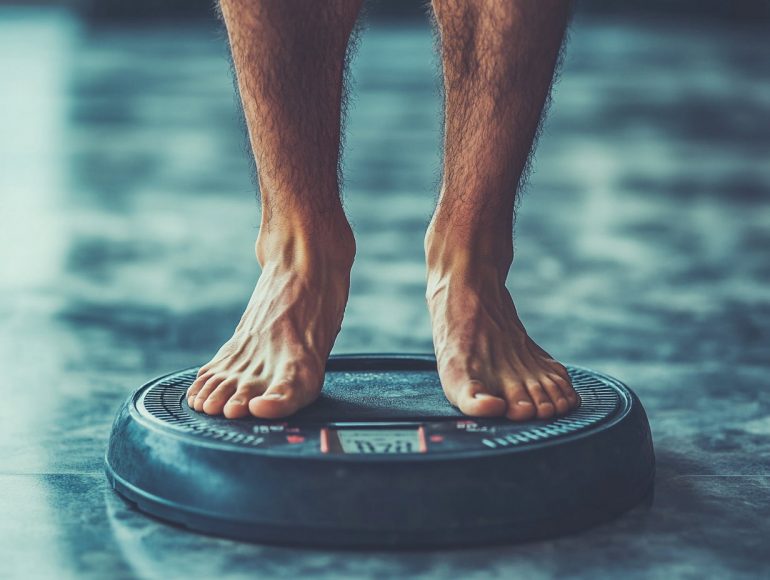How to Stay Fit and Eat Healthy on a Busy Schedule – No Compromise Needed!
Weight loss is a popular topic in the health and fitness world, with endless diets and strategies being promoted
Weight loss is a popular topic in the health and fitness world, with endless diets and strategies being promoted. Whether you’re looking to lose a few pounds or undergo a major transformation, it’s essential to focus on methods that are safe, effective, and sustainable. To help answer some of the most pressing weight loss questions, we spoke with Simrat Kathuria, CEO and Head Dietitian at The Diet Xperts, who shared expert insights on achieving long-term weight loss success.
1. What Are the Most Effective Strategies for Sustainable Weight Loss in 2025?
To achieve sustainable weight loss in 2025, focus on balanced nutrition, regular exercise, and mindful habits. A diet rich in lean proteins, complex carbohydrates, and healthy fats can help you feel full while reducing processed foods and added sugars. Combining strength training with cardio exercises boosts metabolism and preserves muscle mass. Additionally, practicing mindful eating, such as controlling portion sizes and addressing emotional eating, is crucial for long-term success. Aim for a gradual weight loss of 0.5-1 kg per week, as this approach is more sustainable and healthier. Don’t forget to prioritize sleep, stress management, and professional guidance to enhance your weight loss journey.
2. Intermittent Fasting vs. Time-Restricted Eating: Which is Better for Weight Loss?
Both intermittent fasting (IF) and time-restricted eating (TRE) are effective strategies for weight loss and improving overall health, but they differ in approach:
- Intermittent Fasting (IF): This method alternates between periods of eating and fasting (e.g., 16:8 or 5:2), which promotes calorie reduction and fat loss.
- Time-Restricted Eating (TRE): TRE focuses on limiting eating to a specific window of time (e.g., 8-10 hours per day), which can improve metabolic health and insulin sensitivity.
Both approaches may help with weight loss, reduce inflammation, and improve blood sugar control. Success with these methods depends on your individual lifestyle, adherence to the method, and balanced nutrition during eating periods.
3. How Does the Gut Microbiome Affect Weight Loss?
The gut microbiome—the trillions of bacteria in your digestive system—plays a crucial role in how we metabolize food, store fat, and regulate hunger hormones like ghrelin and leptin. A healthy, diverse microbiome can enhance digestion, nutrient absorption, and fat metabolism, while an imbalanced microbiome can lead to weight gain, inflammation, and insulin resistance. To nourish beneficial bacteria and support weight management, include fiber-rich foods, probiotics, and prebiotics in your diet, such as whole grains, fruits, vegetables, and fermented products.
4. How Can I Balance a Busy Lifestyle with Healthy Eating and Regular Exercise?
For individuals with busy schedules, planning and preparation are key to maintaining a healthy diet and regular exercise. Meal prepping nutrient-dense meals like salads, lean proteins, and whole grains can save time during hectic days. For snacks, opt for easy-to-carry options like fruits, nuts, or yogurt. When it comes to exercise, short HIIT workouts or bodyweight exercises can be effective and fit into even the busiest routines. Make these healthy habits part of your daily schedule, stay hydrated, get enough sleep, and manage stress to maintain overall health and balance.
5. Can AI and Wearable Technology Help Improve Weight Loss Efforts?
Yes! Wearable technology and AI can significantly enhance your weight loss journey. Fitness trackers and smartwatches monitor key metrics such as heart rate, sleep patterns, and activity levels, providing real-time feedback on your progress. AI-powered apps use this data to offer personalized insights, suggest tailored workouts, and adjust meal plans to align with your goals. These technologies also help with accountability by sending reminders and tracking your long-term progress, making it easier to stay on track and make informed decisions.
Conclusion
In 2025, achieving sustainable weight loss requires a combination of balanced nutrition, regular exercise, and innovative strategies like intermittent fasting, time-restricted eating, and leveraging technology. Focus on building healthy habits, managing stress, and personalizing your approach to see long-term success in your weight loss journey.

